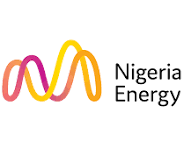
When Nigeria Energy 2025 opens its doors from October 28 to 30 at the Landmark Event Centre in Lagos, the conversations will go far beyond megawatts and market reforms. The three-day summit, themed “Powering Nigeria Through Investment, Innovation and Partnership,” comes at a defining moment for the country’s energy future, one where progress depends not just on policy but on the ability to mobilize capital, technology, and collaboration across every level of the sector.
Nigeria’s energy landscape is shifting rapidly. The Electricity Act 2023, which replaced the 2005 reform law, has fundamentally changed how electricity is generated, distributed, and regulated. By decentralising power and empowering states to create their own electricity markets, it opened new pathways for investment and innovation. But one year on, the sector is still grappling with the realities of implementation, including financing bottlenecks, regulatory overlaps, and infrastructure gaps that keep reliable power out of reach for millions.
That is where Nigeria Energy 2025 comes in. Now in its 12th edition, the conference has evolved from a trade exhibition into a powerhouse of policy dialogue and industry collaboration. It brings together the key players defining Nigeria’s power future, from government officials and regulators to investors, utilities, and innovators. The conversations are focused not on restating problems but on finding practical solutions that can move the sector forward.
This year’s summit opens with a ministerial address from Chief Adebayo Adelabu, Honourable Minister of Power, and a keynote by Governor Babajide Sanwo-Olu of Lagos State, two figures central to implementing energy reform at both national and sub-national levels. Lagos has already taken early steps toward developing its own electricity market, setting an example for how states can take advantage of the decentralised framework. Their participation signals that 2025 is not just about discussion, but about mapping measurable outcomes.
The Leadership Summit begins with “PPP Power Play: Reshaping Nigeria’s Infrastructure Landscape,” a session that examines how well-structured public-private partnerships can unlock the capital and expertise needed to accelerate power projects from transmission upgrades to renewable integration. Nigeria’s infrastructure deficit continues to limit generation and distribution capacity even as demand grows, and this discussion will explore innovative financing models that can change that reality.
Another important session, “In Conversation with State Visionaries: Trailblazing Approaches to Electricity Reform,” will bring together energy leaders from Lagos, Enugu, and Oyo to share how state-level action is shaping Nigeria’s electricity reform. Their experiences demonstrate how local policy and regulation can work in harmony with national frameworks to expand access and attract private investment.
Midway through the day, the summit will turn to the question of implementation in “Nigeria’s Electricity Act – Progress, Milestones and Next Steps.” This high-level dialogue will bring together key stakeholders from NERC, NBET, DisCos, and newly created state regulators to review what has been achieved so far. One of the most significant milestones is the creation of the Nigerian Independent System Operator, which unbundled system operations from transmission and paved the way for a more competitive market. The conversation will also look ahead to the next phase of reform and the policy adjustments needed to sustain investor confidence.
As the first day concludes, “Beyond the Blueprint: Energy Efficiency in Action” will focus on how Nigeria can make the most of its existing resources. With population growth and industrial demand rising, improving energy efficiency has become a national priority. The discussion will explore how policy coordination and technology adoption can drive more sustainable, cost-effective power use across the country.
Day Two will move the conversation from policy to capital mobilisation, examining how Nigeria can attract the estimated 34.5 billion dollars required to achieve universal electricity access by 2030. Sessions such as “Energy Investment Ignited” and “Mission 300: Unlocking Large-Scale Infrastructure Investment” will bring together financiers, development banks, and private equity leaders to discuss how to structure viable projects and manage risks in a challenging financial environment. The agenda also highlights inclusivity and leadership, with panels exploring how women and local developers are shaping the country’s energy investment story. Through the VIP Hosted Buyer Programme, more than 150 senior decision-makers will be matched directly with investors to accelerate new partnerships and project funding.
By the third day, attention will shift to gas and clean energy, the two pillars of Nigeria’s dual transition strategy. The opening panel, “Power Generation in Transition: Integration and Growth in Nigeria’s Energy Future,” will explore how gas-to-power investments are being reshaped by local ownership and new business models following the divestment of international oil companies from onshore assets. Another session, “Stepping Up Gas Infrastructure to Accelerate Energy Security,” will assess opportunities to expand pipelines and storage capacity to improve generation reliability. The day’s final discussion, “Clean Cooking – The Often-Forgotten Energy Access Pillar,” will bring focus to household energy, where 73 percent of Nigerians still lack access to clean cooking solutions, underlining that true energy access must extend beyond electricity to everyday needs.
Supporting this year’s edition are some of the industry’s leading players. Skipper joins as the Main Sponsor, Genesis as Headline Sponsor, Eauxwell as Associate Sponsor, GIZ as Strategic Partner, and Sentry as Support Partner. Their participation reflects growing confidence in Nigeria Energy’s ability to bridge the gap between ideas and implementation.
According to Ade Yesufu, Exhibition Director at Informa Markets, the event’s mission has remained clear: to drive collaboration that leads to measurable impact. “Nigeria Energy 2025 is where policy, innovation, and investment converge,” he said. “Every conversation here is anchored on one goal, to turn ideas into projects and projects into progress.”
As the countdown continues, Nigeria Energy 2025 stands as more than a conference. It is a platform for partnership, a space for alignment, and a roadmap for turning policy into power. Whether through new investments, state-led reforms, or cleaner technologies, the event represents a pivotal moment for Nigeria and West Africa to move from ambition to achievement.
To learn more about the summit and register, visit www.nigeria-energy.com.
#FeaturedPost
